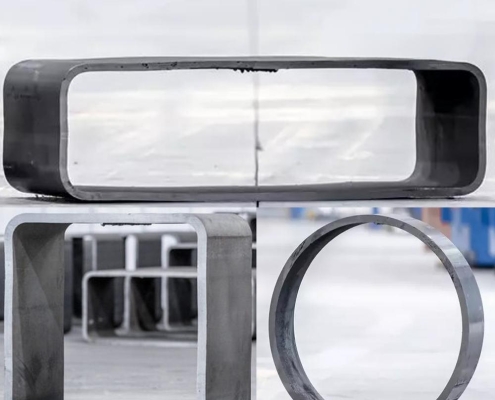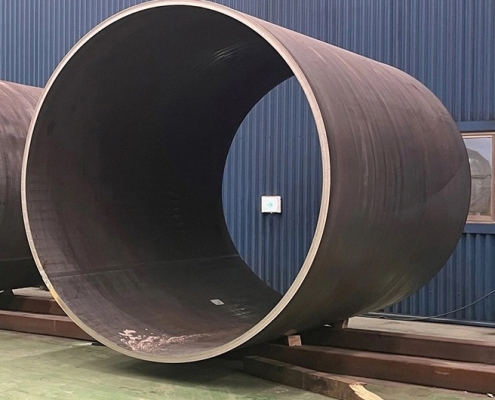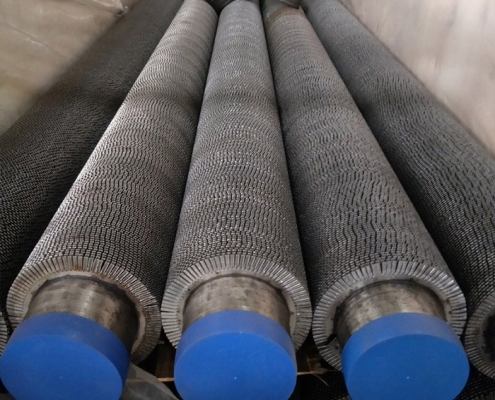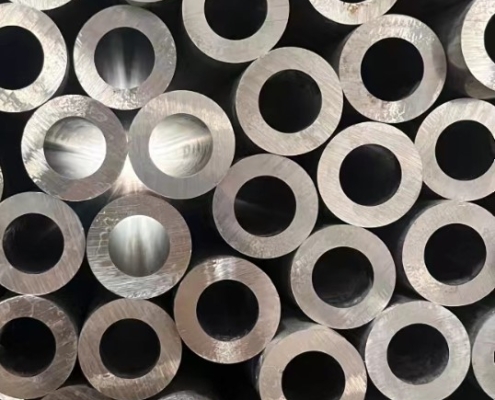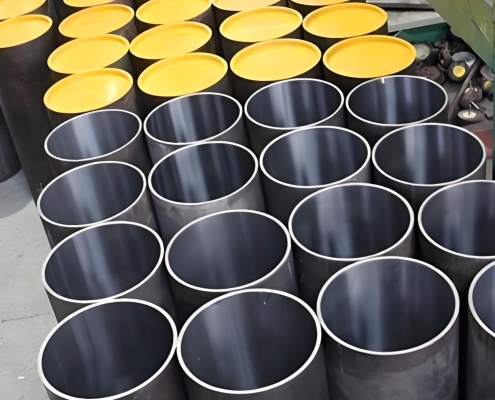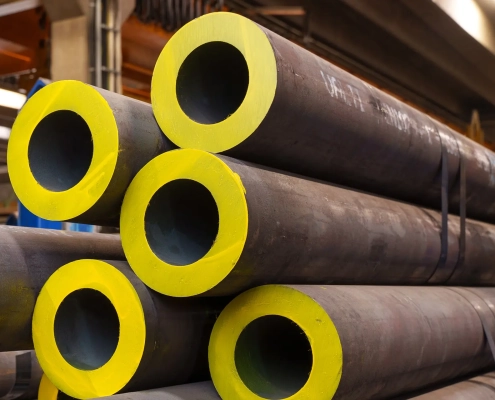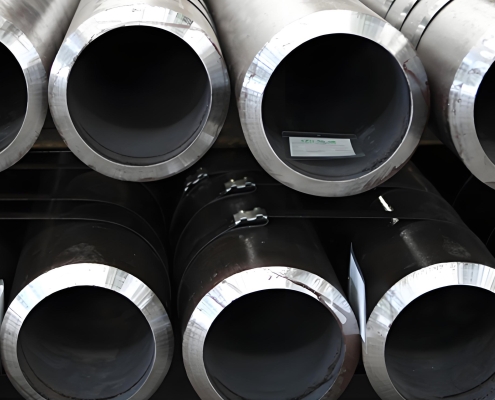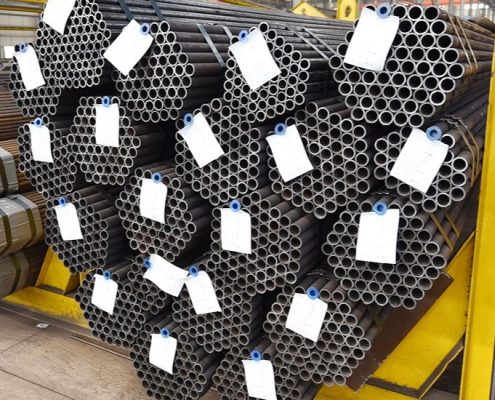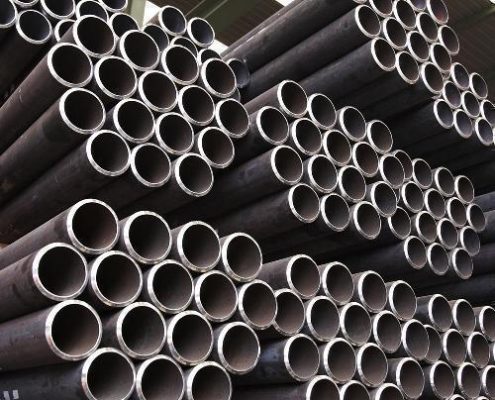Future Energy Steel offers a comprehensive range of Steel Pipes designed to meet diverse industrial needs. Our product line includes line pipes, boiler and heat exchanger tubes, mechanical tubings, structural tubings, gas cylinder tubes, precision tubes, and hydraulic cylinder tubes. Each type is manufactured with high-quality materials to ensure durability and performance. With a variety of specifications available, we cater to specific requirements across different sectors. Whether you need robust structural solutions or precision-engineered components, our steel pipes are the ideal choice for reliable and efficient performance. For inquiries or purchases, please contact them directly at [email protected].
FAQs
What is Steel Pipe?
Steel Pipe is a long, hollow cylinder made of steel, used primarily to convey substances that can flow — such as liquids, gases, and slurries. It is also used for structural applications and in the construction industry.
How Many Types of Steel Pipe?
Several types of steel pipes are classified based on their manufacturing processes, material compositions, and applications. Here are the primary types:
Based on the Manufacturing Process
Seamless Steel Pipe:
Hot Finished Seamless Pipe: This is made by heating a solid billet and forming it into a pipe without a seam.
Cold Drawn Seamless Pipe: This is produced by drawing the hot-formed pipe through a die to achieve precise dimensions and a smooth finish.
Welded Steel Pipe:
Electric Resistance Welded (ERW) Pipe: This is made by welding the edges of steel plates or coils using electric resistance.
Longitudinal Submerged Arc-Welded (LSAW) Pipe: Made by welding along the length of steel plates.
Spiral Submerged Arc-Welded (SSAW) Pipe: Made by welding spirally formed steel strips.
Based on Material Composition
Carbon Steel Pipe: Made from carbon steel, which is durable and strong.
Alloy Steel Pipe: Contains alloying elements like chromium, nickel, and molybdenum for enhanced properties.
Stainless Steel Pipe: Made from stainless steel, offering excellent corrosion resistance.
Galvanized Steel Pipe: Coated with zinc to prevent corrosion.
Based on Applications
Line Pipe: Used for transporting oil, gas, and water.
Structural Tubing: Used in construction for structural support.
Boiler and Heat Exchanger Tube: Designed to withstand high pressure and temperatures in boilers and heat exchangers.
Mechanical Tubing: Used in machinery and equipment.
Precision Tube: Specifically designed for automotive and precision components.
Gas Cylinder Tube: Designed to store industrial gases.
Hydraulic Cylinder Tube: Designed to convert fluid power to mechanical power.
Drill Pipe: Used in drilling operations in the oil and gas industry.
Special Types
Coated Steel Pipe: Pipes with additional coatings (e.g., 3LPE, epoxy) for enhanced protection.
Galvanized Steel Pipe: Zinc-coated for corrosion resistance.
Black Steel Pipe: Uncoated steel pipe often used for transporting gas or water in low-pressure applications.
What are the Advantages of Steel Pipe?
Steel pipes offer several advantages, making them popular in various industries. Here are some of the key benefits:
1. Durability and Strength
High Tensile Strength: Steel pipes can withstand high pressure and stress without deforming.
Impact Resistance: They can endure significant impact forces, making them suitable for harsh environments.
2. Corrosion Resistance
Protective Coatings: Steel pipes can be coated with zinc (galvanization) or epoxy to prevent rust and corrosion.
Alloy Variants: Stainless and alloy steel pipes offer intrinsic corrosion resistance.
3. Versatility
Wide Range of Sizes and Shapes: Available in various diameters, wall thicknesses, and lengths.
Multiple Applications: Used in transportation, construction, industrial processes, and more.
4. Cost-Effectiveness
Long Lifespan: Durable and requires less frequent replacement, reducing long-term costs.
Low Maintenance: Resistant to wear and tear, minimizing maintenance needs.
5. Ease of Fabrication and Installation
Weldability: Steel pipes can be easily welded and fabricated into different shapes and structures.
Customizability: This can be tailored to specific project requirements.
6. Thermal and Chemical Resistance
High Temperature Tolerance: Suitable for high-temperature applications, such as boilers and heat exchangers.
Chemical Resistance: Alloyed variants can resist chemical corrosion.
7. Environmental Benefits
Recyclability: Steel is one of the most recycled materials globally, reducing environmental impact.
Sustainable: Using recycled steel reduces the need for raw material extraction.
8. Reliability and Safety
Leak-Proof: Seamless and welded steel pipes provide secure transport of fluids and gases.
Fire Resistance: Steel pipes do not burn or emit toxic fumes, adding a layer of safety.
9. Structural Integrity
High Load-Bearing Capacity: Ideal for structural applications where high strength is required.
Stability: Maintains integrity under various loads and environmental conditions.
These advantages make steel pipes a preferred choice for numerous applications, from infrastructure projects to industrial uses.
Are Steel Pipes Corrosion Resistant?
Steel pipes can be corrosion resistant, but the resistance level depends on the type of steel and any additional coatings or treatments applied. Here’s a detailed look at how steel pipes achieve corrosion resistance:
Types of Steel with Corrosion Resistance
Stainless Steel Pipes
Composition: Contains chromium, which forms a passive layer of chromium oxide on the surface, protecting it from corrosion.
Types: Different grades, like 304 and 316, offer varying levels of corrosion resistance, with 316 providing higher resistance due to its molybdenum content.
Alloy Steel Pipes
Addition of Elements: Alloyed with elements like chromium, nickel, and molybdenum to enhance corrosion resistance.
Galvanized Steel Pipes
Zinc Coating: Coated with a layer of zinc, which acts as a sacrificial anode, protecting the underlying steel from corrosion.
Coatings and Treatments for Corrosion Resistance
Epoxy Coatings
Application: Applied to the interior or exterior of the pipe, providing a protective barrier against corrosive substances.
Polyethylene Coatings (3LPE)
Multi-layer Protection: This system combines an epoxy primer, an adhesive layer, and a polyethylene topcoat for excellent protection against corrosion.
Thermally Sprayed Aluminum (TSA)
Aluminum Layer: Provides long-term protection in harsh marine and industrial environments.
Fusion Bonded Epoxy (FBE)
Durable Coating: Applied through a fusion bonding process, creating a strong, corrosion-resistant layer.
Zinc-Rich Primers
Sacrificial Protection: Contains high levels of zinc, which corrode preferentially, protecting the steel.
Factors Affecting Corrosion Resistance
1. Environmental Conditions
Exposure: Constant exposure to moisture, chemicals, and salty environments can impact the corrosion resistance of steel pipes.
Temperature: High temperatures can accelerate corrosion, necessitating specialized coatings.
2. Mechanical Damage
Scratches and Dents: Physical damage can compromise protective coatings, leading to localized corrosion.
While plain carbon steel pipes are prone to corrosion, applying appropriate coatings and using corrosion-resistant alloys significantly enhance their durability. The choice of protective measures depends on the specific environmental conditions and the intended use of the steel pipes.

